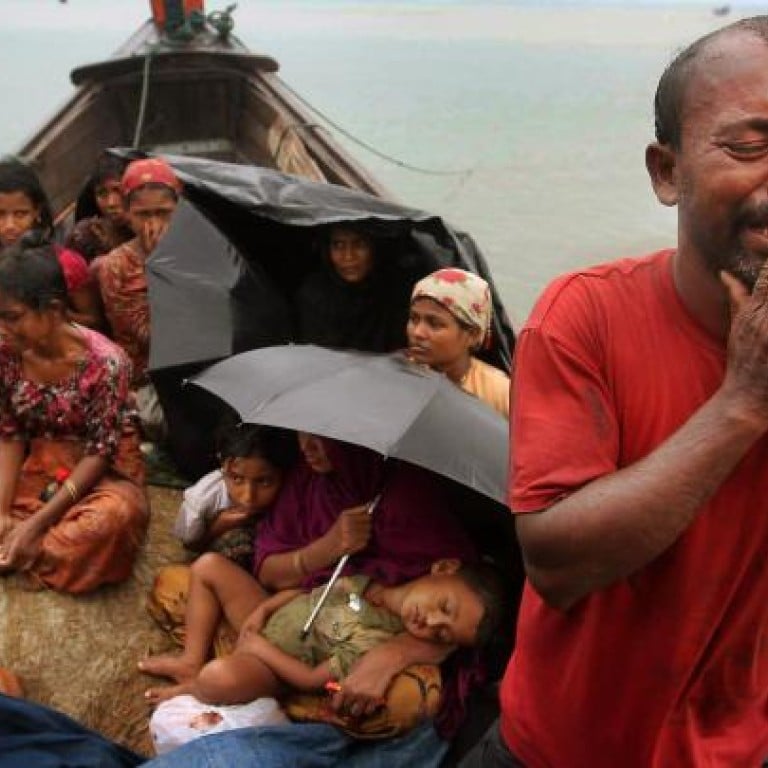
Myanmar has barred Rohingya from mosques since start of Ramadan
Officials in Rakhine state have stopped Muslim minority worshipping since Ramadan began
Myanmar's security forces barred Muslim Rohingya from worshipping in mosques across Rakhine state since the start of Ramadan, said people with knowledge of the matter.
The ban started in the third week of last month at the start of the Muslim fasting month. It is ongoing even with the end this week of Eid ul-Fitr, the festival that marks the close of Ramadan.
Nearly all the 500 mosques in the western state had been affected, Rohingyas said.
The state has been wracked by clashes between the minority Rohingya and the Buddhist majority Myanmese.
"At the start of Ramadan, Nasaka forces [Myanmar's border guards] sealed six mosques in our vicinity and threatened to arrest or shoot us if we dared to pray there," Kalimullah, a 60-year-old Rohingya man, said on Tuesday by phone from Alethangyaw township in Rakhine. "We hoped they would open the mosques for us for Eid. But they did not. We now know that Eid prayers were not held in any mosque in Arakan [Rakhine] yesterday."
Instead of easing the restrictions for Eid, the clampdown intensified, Kalimullah said.
"On the night of August 18, Nasaka forces entered … villages in Alethangyaw and ordered the caretakers to lock the mosques and they took away the keys with them," Kalimullah said. "They said the Rohingya would never be allowed to pray in any mosque in the area."
He said Myanmese officers ordered Rohingya villages not to participate in mass prayers for Eid, and guards patrolled the traditional prayer grounds to prevent gatherings.
In June, reports of a Buddhist's rape by three Muslims sparked ethnic violence between Buddhists and Rohingya.
During the unrest, Myanmese security forces perpetrated human rights abuses in Rohingya villages, Human Rights Watch and Amnesty International claimed last month.
The rights groups said Buddhist mobs and security forces looted and destroyed Rohingya homes, and detained and killed Rohingya.
Human Rights Watch described the situation as "state-sponsored persecution" of the Rohingya people.
Security forces told Rohingya that if they wanted to practise their Islamic faith, they should do so outside Myanmar, said Kalimullah.
"I can no longer enter my local mosque where I prayed for 50 years," Kalimullah said. "In fact, the five-times-a-day congregational prayers have been halted at all the 50 or 60 mosques in Alethangyaw."
Nurul Islam, a Rohingya rights activist based in Bangladesh, said Myanmese security forces were pressuring the Rohingya to leave the country.
A Rohingya community leader based in Britain, also called Nurul Islam, said Myanmar's government was sponsoring the latest spate of attacks against the Rohingya.
"They are taking the persecution in Arakan to an extreme level to force the Rohingya to flee the country," he said.
Mark Farmaner, director of Burma Campaign UK, said: "The reports of Rohingya people being barred from mosques in addition to ongoing human rights abuses makes it all the more urgent for a fully independent UN investigation into what is taking place in Rakhine state.
"The UN General Assembly should set up a Commission of Inquiry when it passes a resolution on Burma [Myanmar] later this year."

